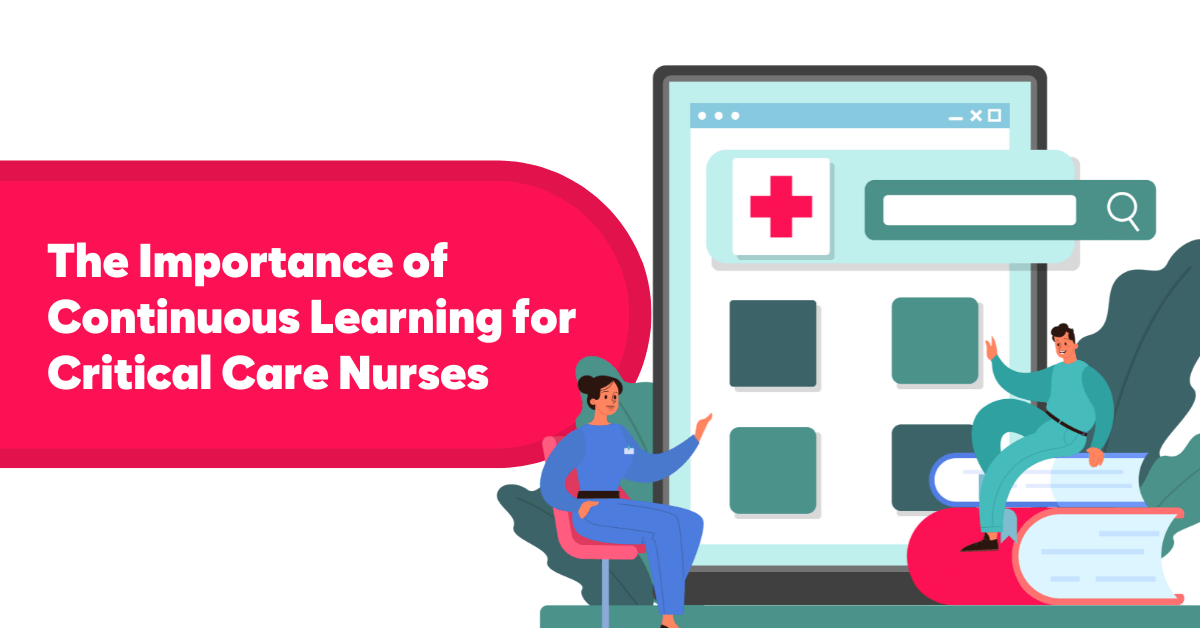Critical care nurses are highly specialized registered nurses who care for patients experiencing life-threatening medical conditions. They work in intensive care units (ICUs), critical care units (CCUs), and other similar settings in hospitals and healthcare facilities. As a critical care nurse, you play a crucial role in the healthcare team. You are responsible for monitoring and caring for patients who require constant attention and advanced medical treatment.
Critical care nursing is a challenging and rewarding profession that requires a unique set of skills and knowledge. As healthcare evolves, so do the demands placed on critical care nurses. To maintain your expertise and deliver the best possible care, you must embrace a culture of continuous learning supported by institutions, peers, and professional organizations. By doing so, you can consistently save lives and improve patient outcomes.
Here is why continuing your education is essential after obtaining a nursing degree and critical care nursing certification.
Staying current with evolving medical practices
Medical science is constantly advancing, and critical care nursing is no exception. New treatments, medications, and technologies come in regularly to improve patient outcomes. Continuous learning allows you to stay up to date with the latest medical practices, ensuring you can provide the best possible care for your patients.
For example, advancements in mechanical ventilation strategies, sepsis management, and cardiac care have drastically improved patient survival rates in recent years. To deliver these cutting-edge treatments effectively, all critical care nurses must remain informed and proficient in using such treatments.
Adapting to changing patient populations
Critical care nurses work with diverse patients, each with unique healthcare needs. The patient population can vary in age, ethnicity, culture, and medical conditions. Continuous learning equips you with the knowledge and skills to effectively adapt to these changing demographics.
Pediatric critical care, neonatal intensive care, and senior critical care require specialized knowledge and approaches. By pursuing continuous education, you can provide individualized care tailored to the specific needs of your patients, regardless of their age or background.
Enhancing critical thinking and problem-solving skills
Critical care nursing involves high-stress situations where split-second decisions can significantly affect a patient’s outcome. Continuous learning hones a nurse’s critical thinking and problem-solving skills, allowing them to make informed decisions under pressure.
Simulation training, case studies, and real-world scenarios presented during ongoing education can help you and other critical care nurses develop the ability to assess complex situations, prioritize tasks, and implement effective interventions. These skills are invaluable in essential settings of care where every moment counts.
Ensuring patient safety
Patient safety is the top priority in healthcare, and critical care nurses play a pivotal role. Continuous learning helps identify and mitigate potential risks, errors, and complications in care facilities. You can minimize adverse events and enhance patient outcomes by staying informed about safety protocols and best practices.
Building confidence and professional growth
Continuous learning benefits patients and nurtures a nurse’s professional growth. As a nurse, when you acquire new skills and knowledge, you become more confident in your abilities. Greater confidence leads to job satisfaction and better career advancement opportunities.
Certifications in critical care specialties, such as CCRN (Critical Care Registered Nurse) or CSC (Cardiac Surgery Certification), can be obtained through continuous learning, demonstrating your commitment to excellence. Furthermore, it opens doors to higher-paying positions and leadership roles within the critical care team.
Conclusion
In the dynamic and high-stakes world of critical care nursing, continuous learning is a lifeline. By staying current with evolving medical practices, adapting to changing patient populations, enhancing necessary thinking skills, ensuring patient safety, and fostering professional growth, you can provide your patients with the highest level of care.
SkillGigs, an AI-based talent marketplace, offers the latest jobs to critical care nurses. Nurses can search for jobs based on their experience level and city preferences, among other things. Also, most of the jobs on our platform offer competitive pay and candidate can bid on the ones that offer them most money. Click on this link to find all the latest contractual and permanent job opportunities for critical care nurses.




